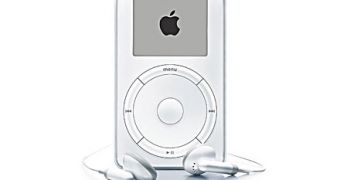After Apple's decision to add a checksum, or hash, to the iPod database to restrict non-iTunes software, like Amarok or other open-source music players, from having the ability to add music, the people from Gtkpod have managed to fix the problem by creating some code to bypass the restriction.
Apple have done the same thing to iTunes 4.5, to make things harder for other applications to read off their DAAP shares, all this stuff being considered by some people a legitimate DB schema change for ensuring data integrity. Also, they encrypted their firmware so the users won't use alternate operating systems on the iPod, from the 2nd generation of iPod Nano and further releases, a much more difficult obstacle to overcome.
ITunes writes a SHA1 hash to the iPod database where new iPods check against. If the check fails then the device that reports it has no songs on it, preventing 3rd party apps to write their own databases. The cracking of this checksum will permit users to continue using their favorite applications.
Lennart Poettering, an open-source software developer who participated in the creation of a Linux implementation of Apple's ZeroConf protocol, discusses on his blog: "iTunes uses cryptographic hashes to make sure that only real iTunes instances can swap audio with each other. This key has been broken multiple times, hence there are now a couple of alternative DAAP implementations, which can swap audio with iTunes (Rhythmbox being one example). However, with iTunes 7 Apple changed the cryptographic key once again, and until now nobody managed to break it."
Although Apple may not have the intention of blocking third-party apps from accessing the iTunes database, the events that took place now could be a warning signal that in the future this could mean moving the lock down to the iPhones.

 14 DAY TRIAL //
14 DAY TRIAL //